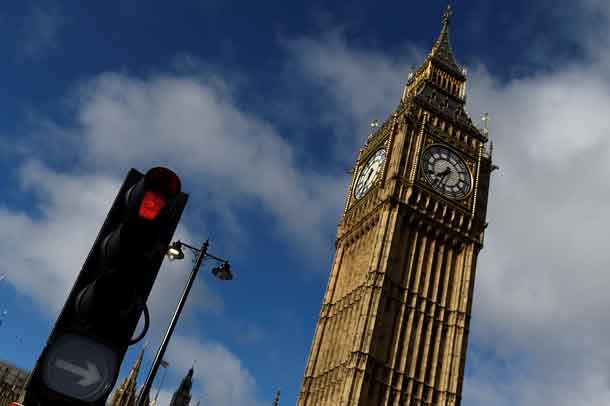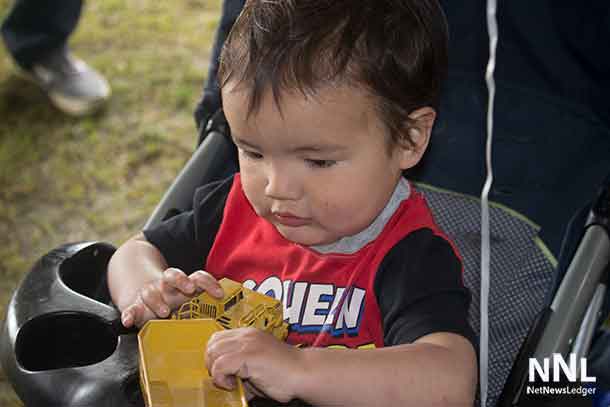
In an era of greater transparency, consumers and investors increasingly expect companies to look beyond profits and report their environmental and social impact
By Sarah Shearman
LONDON – (Thomson Reuters Foundation) – Social businesses trying to solve a diverse range of problems, from homelessness to gender inequality, the refugee crisis to plastic pollution often share the same conundrum – how to measure success.
In an era of greater transparency, consumers and investors increasingly expect companies to look beyond profits and report their environmental and social impact.
For social enterprises, which are businesses that aim to do good as well as make profit, measuring impact is often a non-negotiable requirement from their funders.
Unlike reporting financial results, there is no universal standard for impact. The outcomes for a business that tackles food waste, for example, will look very different to those for a business working to reduce knife crime.
“It is a bit of a dark art, measuring impact,” Jessi Baker, founder and chief executive of Provenance, a British social enterprise that uses blockchain technology to make supply chains more transparent, told the Thomson Reuters Foundation.
Large companies like Unilever and smaller social enterprises such as Canada-based African food brand Farafena are among businesses using Provenance’s software to show consumers how, when and where their products were made.
As a social enterprise itself, Provenance is also required to report impact to investors. Its software helps other companies measure their impact, but its own is harder to quantify.
“Our work spans lots of different types of impact, which can be quite difficult to benchmark and quote – it is something we work on very hard,” said Baker.
“We can help a shopper pick a product that is having a more positive impact but only if the positive impact is generated by the brands and products we work with,” she said.
DATA RICH, TIME POOR
A common complaint from social entrepreneurs is reporting impact can be very time consuming, taking them away from the already challenging job of running a sustainable business at the same time as achieving their mission.
More than three-quarters of British social enterprises measured their impact in 2017, according to a survey conducted by Social Enterprise UK, the body that represents the sector.
It found 37 percent of these businesses measured impact to a “large extent”, 40 percent measured it to “some extent”, while nine percent took no steps to measure it.
Measuring impact can be particularly onerous for social enterprises with multiple investors who may have different reporting requirements.
“There is a big danger that impact becomes about reporting to the investors, rather than what it is meant to be, which is working out how you can do things better,” said Jeremy Rogers, chief investment officer of Big Society Capital, a social investment wholesaler.
Big Society Capital, which invests in funds that support social enterprises and charities, keeps impact reporting requirements “as light as possible”, using a single metric.
For example, a social enterprise that is trying to reduce unemployment might be required to report the number of people it got into employment.
Rogers explained social enterprises’ impact might also be qualitative, such as a human-centred story about the difference the business has made.
“Impact measurement can get quite stuck in data sometimes and you can lose track of what the goal here is. The goal is really understanding if the social enterprise’s mission is working,” he said.
Understanding impact can provide social enterprises with useful insights that help them grow, but not all of these businesses are interested in doing so, he explained.
“There are lots of really good social enterprises that have no interest in scaling. That group often sees impact as a bit of a distraction,” he said.
DATA AS AN ENABLER
But not all social enterprises view this process as burdensome.
Britain’s Giki is a mobile app that allows consumers to find out about the environmental and social credentials of the products they buy.
Giki’s co-founder Jo Hand said impact measurement is a really useful management tool for the business.
“Maybe 10, 20, 30 years ago, data wasn’t so important but it is so integral now and can be such an enabler,” said Hand.
By analyzing how its customers interact with the app, Giki has been able to understand what they are interested in and build the business accordingly.
“If you use your data right, it can really give you helpful insights into what you should be doing,” she said.
Giki, like Provenance, is a data business, so measuring impact more naturally chimes with the founders’ skill sets.
Rogers said social entrepreneurs with less experience in this field should not be intimated by the idea of measuring impact.
“What we find again and again is they know much more than they think they do,” he said.
Baker’s advice to social entrepreneurs is to build an impact measurement plan into the business from the start, rather than treating it as an afterthought.
She suggested making an “impact model”, detailing how the business will measure impact to its benefit.
“It doesn’t have to be as detailed as your financial model, but it makes you question the impact before you start,” she said.
(Reporting by Sarah Shearman @Shearmans. Editing by Astrid Zweynert @azweynert. Please credit the Thomson Reuters Foundation)






